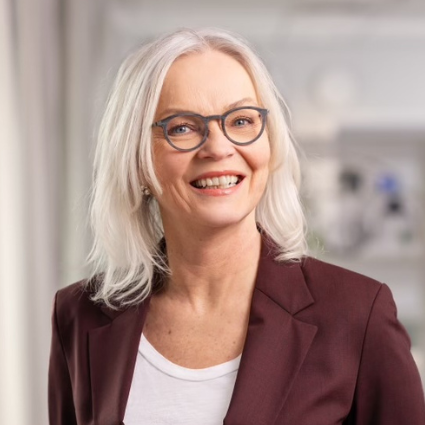Spotlighting a Businesswoman's Frustrating Hearing Care Experience
This is a story about Rikke, a busy, energetic, professional 56-year-old woman, whose hearing loss is negatively impacting her life – particularly her professional endeavors.
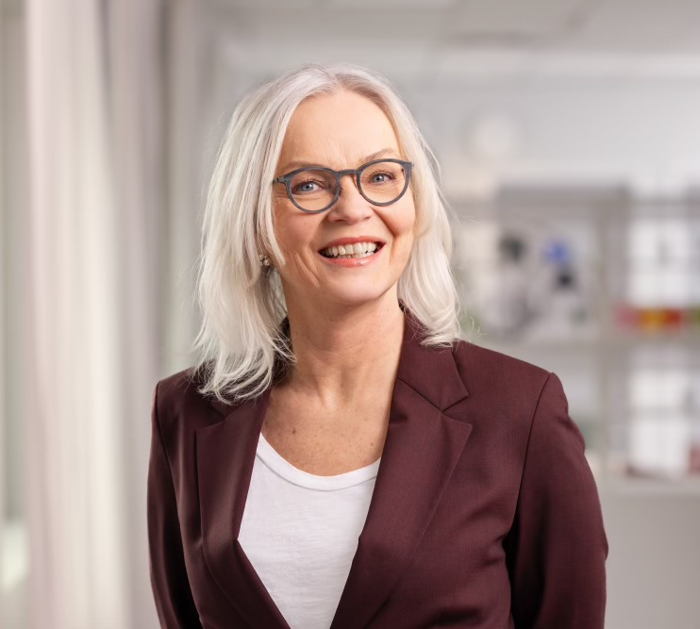
"I thought that hearing loss was the worst thing I could have"
As the Vice President of Sales and Marketing for a MedTech company, Rikke's hearing loss affected her ability to communicate effectively, both internally, leading her team, and externally, working with customers. She had trouble hearing conversations in meetings and during customer dinners at loud, crowded restaurants. As many people can relate, she was growing increasingly frustrated because she was missing key pieces of conversations, which underscored the importance of finding a solution for her hearing loss.
Unfortunately, her hearing care journey was frustrating. Therefore, she still doesn’t have a solution for her hearing loss. Let’s explore her journey and talk about the importance of patient-centered care.
Proper Communication is Essential in Rikke’s Profession
“About six years ago – right around the time that I turned 50 – my husband started to notice that I missed things that he had said the first time. I’d say ‘what?’ and ‘huh?’ a lot. And I was turning the TV volume on a little louder. My husband was always saying that the TV was too loud,” Rikke explained. “Since I have a family history of hearing loss, he got suspicious that I had a hearing loss, too.”
In Rikke's job, proper communication is essential.
“Crowded restaurants were a problem and it started irritating me that I couldn’t hear conversations well. In restaurants with customers or colleagues, I was guessing a lot of the words they were saying, especially when they were talking in a different language. It was difficult for me,” she continued.
Rikke said she was initially reluctant to get her hearing checked.
“I was nervous at first. When I was younger, I’d have my annual check at the eye doctor, and I was never worried about getting glasses. If you had glasses, you were a clever girl! You could read a lot and become more clever."
But I thought that hearing loss was the worst thing I could have,” Rikke explained.
1/3
The Clinic’s Inconvenient Hours Didn't Seem to Cater To Professionals
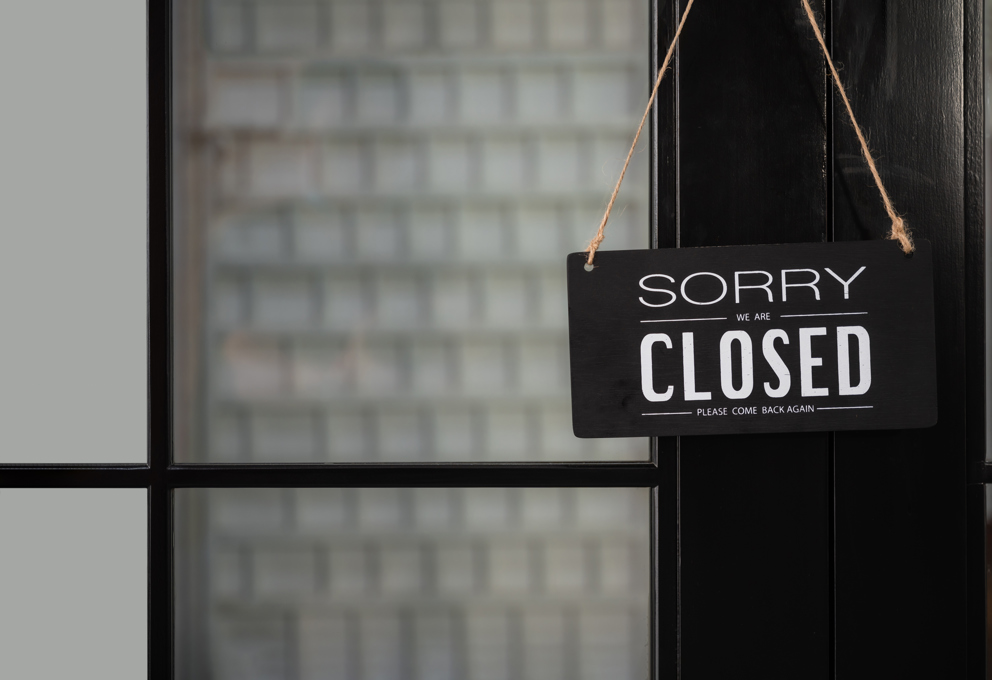
One of Rikke’s family members works in the audiology field and encouraged her to go to a hearing clinic for a screening. Around the same time, Rikke saw an ad for a small hearing aid on social media, which helped her realize that the hearing devices have improved and evolved from her grandfather’s old, clumsy, loud model.
“I saw something on social media looking for volunteers to test a small hearing aid and I thought, I could do that. If that’s the one I could use, I could live with that,” Rikke said.
But, once she decided to see an audiologist, it wasn’t easy for her to book her initial appointment.
1/3
Rikke’s Lifestyle and Specific Hearing Needs
When Rikke first went to her local hearing clinic, no one asked her for details about her lifestyle, daily routine, social activities, personal preferences, or information about how her hearing impacted her life. By understanding her lifestyle – and the contexts in which she struggles with her hearing – it would have been easier and more accurate to tailor the hearing care experience to her specific needs.
For instance, she takes the train to work every day, and she often travels by plane for business trips. She sits in 5-8 online meetings per day, connecting her headphones to her laptop or smartphone for a large portion of each day. She also exercises frequently and enjoys doing yoga.
She has been feeling discouraged that she can’t hear conversations during restaurant meals and work meetings, particularly in crowded venues with background noise.
Barriers For Hearing Aids vs. Glasses
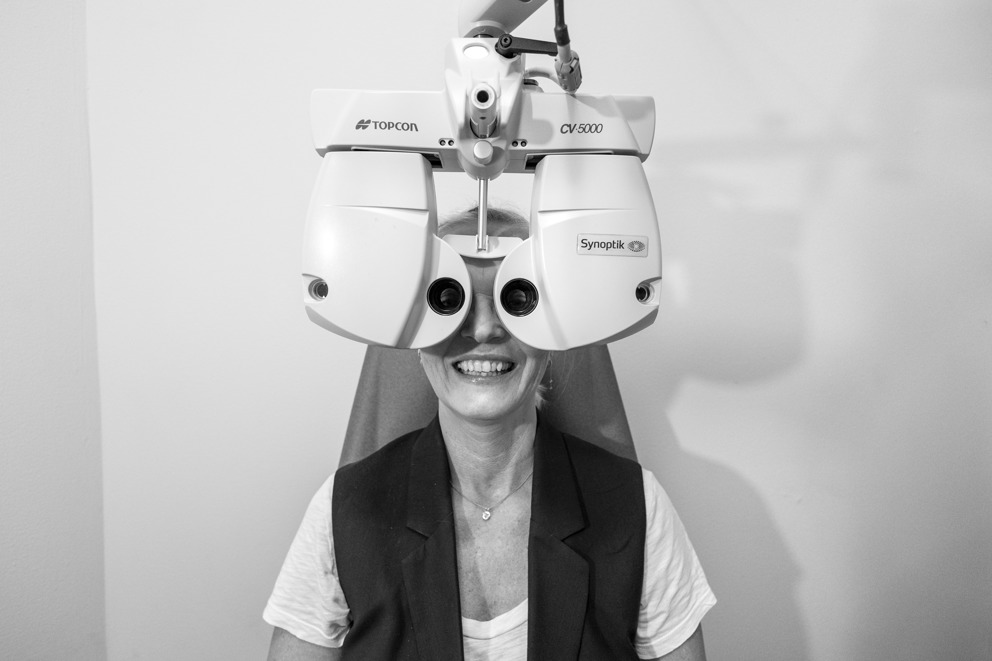
Rikke expressed frustration that there are certain barriers – like needing a referral – to get hearing aids that aren’t necessary when getting glasses.
“It feels like a difficult process with a lot of steps to get hearing aids,” Rikke said. “I know I need the hearing aids, but it should be easier than it is to get them. It feels overwhelming to get started. I need to go to the physician to get the referral, then I need to get an appointment to see the audiologist, and before you know it, three months have passed.”
Rikke feels like there’s a stigma around needing to wear hearing aids that’s different than needing to wear glasses.
“If you can’t hear, you will not reply to other people’s questions. You might get a conversation wrong or pick up the wrong word." Rikke explained.
1/3
Rikke also explained that when it’s time to get new glasses, she can spontaneously go into an optical shop without an appointment, which is not the case with hearing aids. The sales associates make it feel fun to shop for glasses, like shopping for an accessory, helping her find modern, smart frames that look good on her.
On the other hand, the staff at the hearing clinic emphasized how the hearing aids were so small that no one would notice that she was wearing them.
“When I went to the hearing clinic, they made it seem shameful that I needed to wear hearing aids,” Rikke remembered, saying that the experience wasn’t fun or pleasant at all.
Another challenge around having hearing aids was the small size of the batteries, according to Rikke.
“When I get older, and my fingers can’t do fine motor skills as easily, it will be harder for me to change the hearing aid batteries,” Rikke explained. “I was surprised that I had to change the batteries as often as I had to when I had the hearing aids. The batteries only lasted for two days. It was a really short amount of time since I used it on my iPhone so much for work calls.”
She explained that since she’s a professional woman who participates in multiple online meetings per day, she’s on her phone constantly. But since the staff at the audiology clinic didn’t ask her questions about her lifestyle, profession, or about how she’d use her hearing aids each day, they didn’t know how frequently she’d need to use her devices – and how quickly the batteries would run out. Therefore, they should have recommended a rechargeable battery for her situation, but they didn’t.
1/3
A Solution That Felt “Unbalanced”
When she finally had her hearing screening a year and a half ago, she said her hearing loss in her left ear was “quite bad,” and her right ear was not as bad. The audiologist recommended a hearing aid for her left ear only.
The audiologist did not recommend the small device that Rikke had seen on social media, and instead recommended a product that was a little bit bigger and sat on the back of the ear. This one was more visible, and not like the one that went inside the ear and couldn’t be seen. The audiologist didn’t explain why he gave her this one particular device instead of another, nor did he outline the benefits of the device he gave her.
“I tested the hearing aid for a month and decided not to keep it. I felt like I didn’t get the best use out of it because I didn’t get it in both ears. I felt like it was unbalanced to only have it in one ear. It felt irritating,” Rikke explained. “I could listen to my phone with my hearing aid in my left ear, but it was weird to listen to the phone with only one ear. I didn’t like it. It felt like only half a solution.”
1/3
She thinks her audiologist ultimately didn’t want to give her two hearing aids because of the cost, but she never asked about her budget or her expectations. But cost wasn’t the most important factor in her hearing aid decision, and she would have willingly paid more money for a complete, satisfying solution to her hearing loss.
Living With Her Hearing Loss
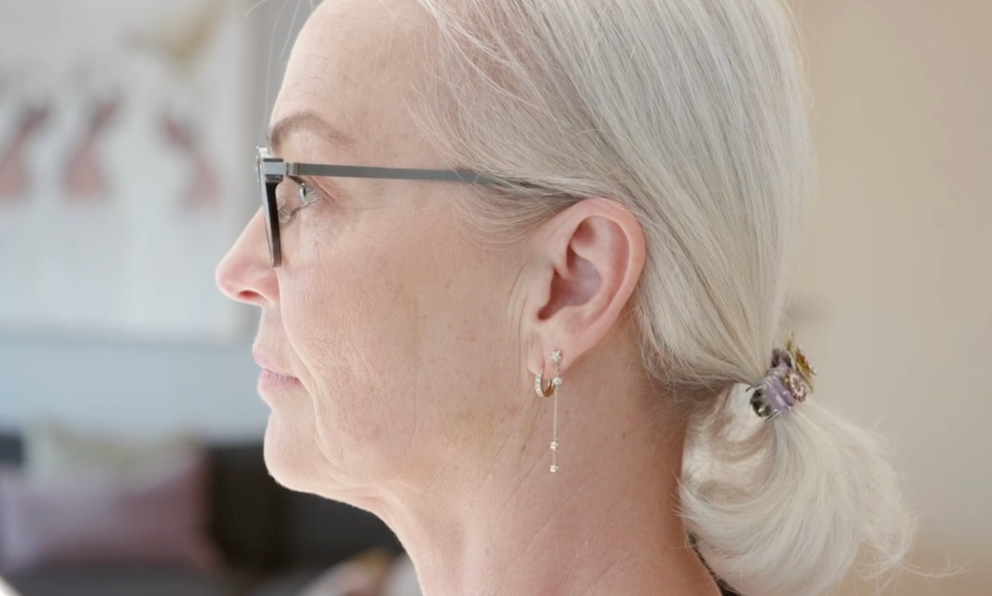
“When I went to return my hearing aid, they just took it back. They didn’t try to solve the problem, ask questions, or work with me. They just accepted that I made my choice and that was it. I wish they had tried to work with me to problem solve,” Rikke said.
“I’m in sales, and if my salespeople came back and said the customer just returned this product, but my team didn’t ask any questions or try to solve the customer’s problems, or try to sell them a different solution, I’d say they weren’t doing their job. They’d better start selling and do their work. When things become a little difficult, the sales team must show the value of the solutions you offer,” Rikke explained. “The clinic that I went to, and where I returned my hearing aids, wasn’t the right place for me. I left there with the feeling that they couldn’t help me solve my hearing loss.”
Since returning her hearing aid a year and a half ago, Rikke has lived with her hearing loss without any hearing aid.
Rikke was, understandably, disappointed by her first experience at a hearing clinic.
“Their hours were so short and inconvenient, and I felt like I didn’t fit into the world of hearing aids because of these circumstances. I was really concerned about the hearing aid return and the audiologist’s lack of concern and unwillingness to find the right solution for me. Did I even test the right product? Are there other products in the market that would have been a better solution for me?” Rikke said.
Patient-Centered Care Is Essential
Rikke’s experience highlights the importance of patient-centered care. Each patient is a person – with their own preferences, expectations, needs, and wants.
After all, hearing aids do the patient no good if they won’t wear them. Be sure to ask the patient smart, thoughtful questions. Do they work? How do they spend their days? What do they love to do? Where do they struggle to hear? What are their expectations around a hearing aid? What’s their budget comfort zone? How often are they on online calls or meetings? What are their concerns around hearing aids?
It's so important for hearing professionals to consider each patient's lifestyle, budget, and expectations when recommending hearing aids. Hopefully, this story has demonstrated the importance of taking a holistic approach to hearing care and ensuring that the solutions align with each patient's individual needs and goals.
How Could Rikke's Experience Have Been Better?
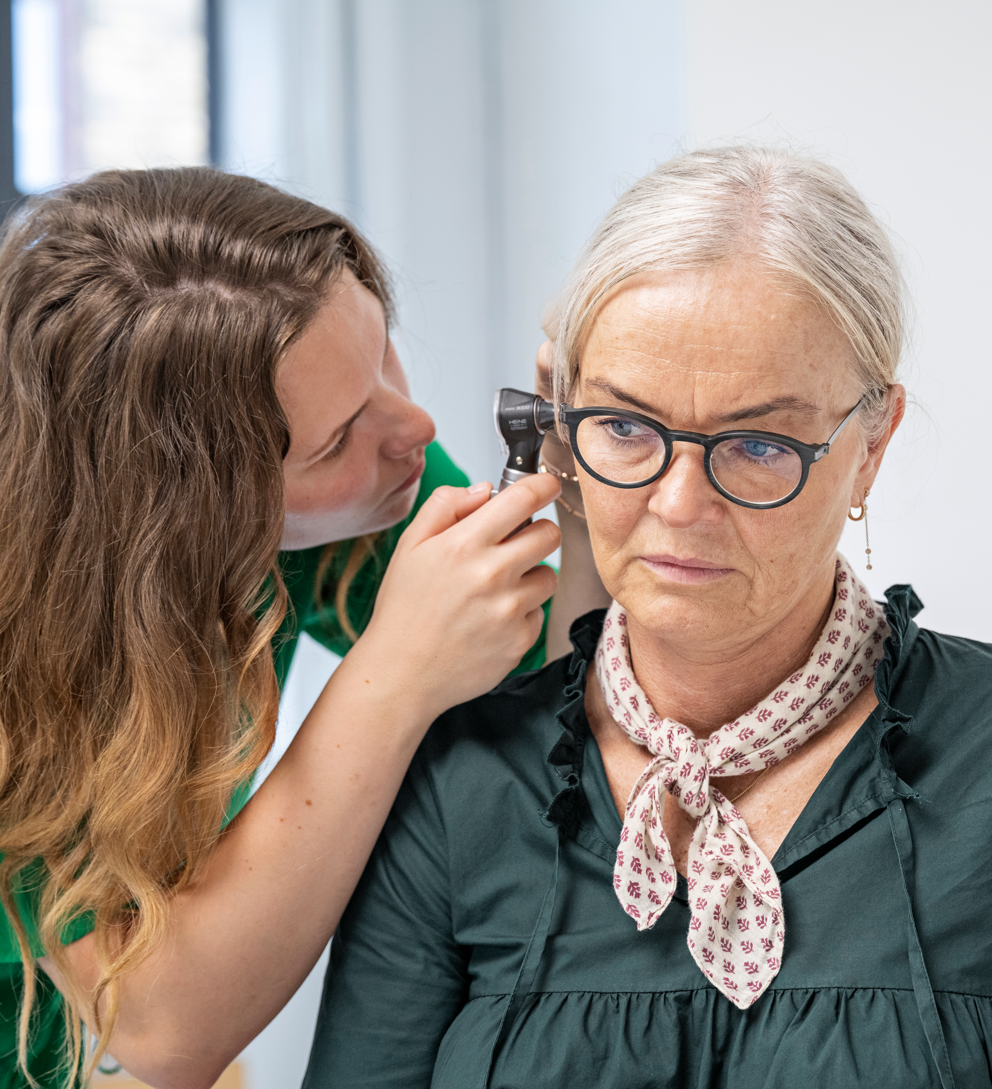
Rikke's journey toward finding the right hearing aids was fraught with obstacles that could have been mitigated with more thoughtful, patient-centric care. Here are several ways her experience could have been significantly improved:
-
Extended Clinic Hours: One of the primary barriers Rikke faced was the clinic's limited opening hours, which did not accommodate her busy work schedule. Offering extended hours during weekdays, perhaps early mornings or evenings, along with availability on Saturdays, could have provided her the flexibility she needed to attend appointments without the added stress of taking time off work.
-
Lifestyle Questionnaires: The initial consultation failed to capture Rikke's specific needs and lifestyle, leading to recommendations that did not fully address her challenges. Implementing thorough lifestyle questionnaires, such as the Client-Oriented Scale of Improvement (COSI), would allow audiologists to understand their patients' daily activities, environments, and specific hearing situations. This knowledge is crucial for recommending personalized care solutions that align with each patient's unique lifestyle and needs.
-
Proper Hearing Aid Onboarding: Rikke's onboarding experience with her hearing aids was not ideal. A comprehensive onboarding process, including detailed explanations of how to use the hearing aids, maintenance tips, and troubleshooting common issues, would have empowered her to make the most of her devices. Additionally, discussing the advantages of different types of hearing aids, including those with rechargeable batteries suitable for her active, tech-engaged lifestyle, would have made a significant difference in her satisfaction and ongoing usage.
-
Open Dialogue and Follow-ups: The lack of follow-up after Rikke decided to return her hearing aid was a missed opportunity for the clinic to understand her dissatisfaction and offer alternative solutions. A more proactive approach, including scheduled follow-ups and open lines of communication, would ensure that any concerns are addressed promptly and patients feel supported throughout their hearing care journey.
**Since this interview, Rikke visited a different hearing clinic and has become a happy user of two hearing aids, enhancing her communication both personally and professionally. Stay tuned as we continue to follow Rikke's hearing journey.
Don't Miss Out On the Latest Insights On Audiology
Sign up today to receive exciting updates, tips, and the latest newsletters from Auditdata.
